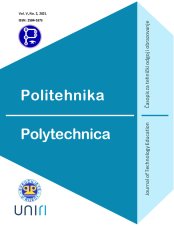Unaprjeđenje rezilijentnosti edukacijom potaknuto potresom i pandemijom
Improving resilience through education driven by earthquakes and pandemics
Author(s): Zlatica Čolja-Hršak, Lidija Runko LuttenbergerSubject(s): Education, Energy and Environmental Studies, Health and medicine and law
Published by: Akademsko politehničko društvo APOLD Rijeka
Keywords: resilience; earthquake; natural disasters; COVID-19; education;
Summary/Abstract: Advances in engineering and science dedicated to disaster risk reduction provide knowledge about the mechanisms of natural hazards including the processes that transform them into disasters. Such scientific knowledge gives solutions to mitigating the vulnerability of infrastructures and societies. The territory of the Republic of Croatia is in a tectonically very active area whose activity has been proven by numerous earthquakes registered throughout history. Depression, posttraumatic stress disorder, anxiety and fear are the most common effects of an earthquake on children and youth. Resilience is the capacity of an individual to respond appropriately to stress, which is learned, practiced, and developed, and where the school and education play significant role. Children must be aware that earthquakes are natural phenomena that occur suddenly, and they must know how to behave should they occur since we live in a seismically active area. Therefore, it is necessary to educate and prepare the children from their early childhood to the likelihood of occurrence of an earthquake and other natural disasters.
Journal: Politehnika: Časopis za tehnički odgoj I obrazovanje
- Issue Year: 5/2021
- Issue No: 2
- Page Range: 49-58
- Page Count: 10
- Language: Croatian

